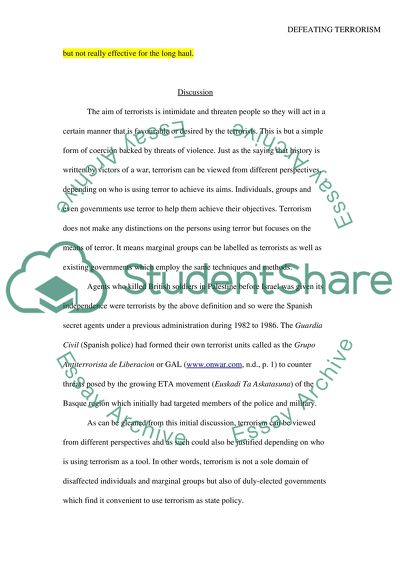Cite this document
(“Can Terrorism be defeated by Military Means Only Essay”, n.d.)
Retrieved from https://studentshare.org/military/1419462-can-terrorism-be-defeated-by-military-means-only
Retrieved from https://studentshare.org/military/1419462-can-terrorism-be-defeated-by-military-means-only
(Can Terrorism Be Defeated by Military Means Only Essay)
https://studentshare.org/military/1419462-can-terrorism-be-defeated-by-military-means-only.
https://studentshare.org/military/1419462-can-terrorism-be-defeated-by-military-means-only.
“Can Terrorism Be Defeated by Military Means Only Essay”, n.d. https://studentshare.org/military/1419462-can-terrorism-be-defeated-by-military-means-only.


